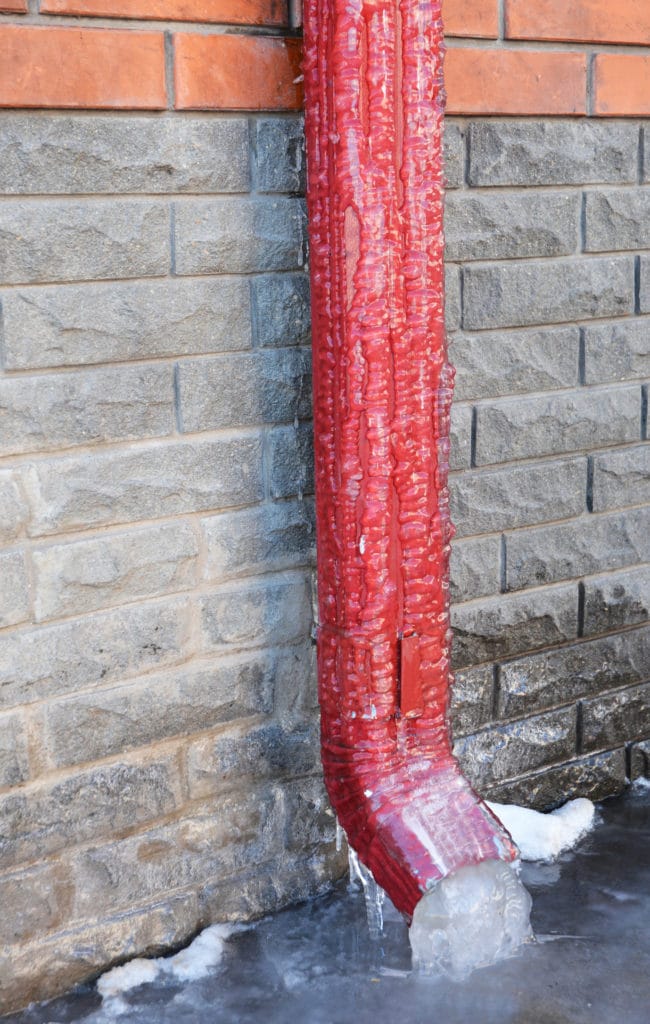Don’t Leave Your Basement in the Cold
So far, it’s been a forgiving winter. Despite some cold snaps, there’s been very little snowfall (did we just jinx it?!)
But we aren’t in the clear yet. If you recall past winters, we’ve seen our fair share of snow in New Jersey. Question is: How do snow and cold temperatures affect your home?
Whether you’re already living with a leaky basement or you’re starting to notice some small changes to your walls or floors, here’s what you should know about winter and your basement.
Water Expands When It Freezes
Burst pipes are a common problem during the winter. When the water in pipes freezes, it expands and puts so much pressure on the pipes that they eventually burst.

The same thing can happen below
Melting Snow + Spring Showers = Flooded Basements
On the surface, snow seems to disappear when it melts. But in reality, all that water goes beneath the surface!
When snow melts, the water table rises. This creates hydrostatic pressure that pushes water through your foundation walls and up through your basement slab. As moisture is added to the soil, it becomes denser and will exert more pressure against the foundation. Water will then enter the home through any gap it can find in the foundation or the walls. That’s why it’s so important to seal cracks in the walls and redirect any water coming through the foundation. One way we do this is by installing an interior French drain system that captures penetrating water and redirects it to a sump pump. From there, it will be discharged up and away from your home.
With spring approaching, melting snow isn’t the only force to reckon with. Spring showers can wreak havoc on susceptible basements. If your basement has flooded in the past, schedule a free consultation before the rain comes pouring down.
Helpful Tips for a Dry Winter Basement
In addition to professional waterproofing, here’s what you can do to protect your basement this winter:
- Clear all gutters and downspouts of any snow and debris. Make sure downspouts extend at least 10 ft. away from the home so water will drain away from the foundation.
- Remove excess snow from the roof and keep snow at least three feet away from your home.
- Ensure that exterior landscape drains are working properly.
- Test your sump pump to make sure it’s in good condition.
- If water is sloping toward your home rather than away from it, add soil to improve the grade.
- Periodically inspect your basement walls and floors for signs of cracks and leaks.
- Apply window well covers to prevent water from seeping through your window. Clear any debris to ensure the window well can properly drain.
Get Peace of Mind With Blue Umbrella Waterproofing
It’s the middle of winter, there’s water in your basement and you don’t know what to do. Based in New Jersey with decades of waterproofing experience, Blue Umbrella is here to help.
Whether your basement’s already leaking or you’re starting to see small problems creep up, give us a call. We offer free estimates for leaky basements in Union County, NJ, and beyond to give homeowners peace of mind through every season.
To schedule service, call Blue Umbrella Waterproofing at 908.432.8858 or contact us online today.
- Do Carbon Fiber Straps Repair Foundation Damage? - January 15, 2025
- Is it Better to Waterproof a Basement from the Inside or Outside? - November 27, 2024
- Is Basement Waterproofing Worth It? - October 11, 2024
Get My FREE Estimate
Schedule a free inspection today!















































